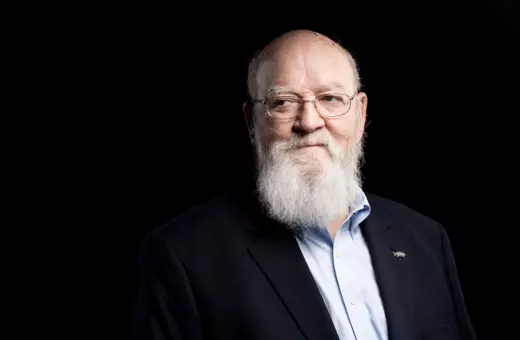When the world doesn’t seem to make sense, many of us turn to music. Some philosophers see it as a contentless abstraction that simply elicits an emotional response in us. But music isn’t just beautiful noise. It carries with it meaning and significance that as listeners we’re always interpreting. Schopenhauer was right: music has a meaning that escapes ordinary language. It can connect us to the world and help us make sense of it in ways that no philosophical discourse can, argues Andrew Bowie.
One of the ways I have coped with the pandemic has been through listening ever more intensively to music. The piece I often returned to was Beethoven’s Eroica Symphony, not least because, like so much Beethoven, it makes sense out of adversity, in ways that just thinking about adversity as a philosopher often doesn’t.
The initial sense any music makes is inherent in the fact that it is not heard just as noise but engages us in specific ways that other sounds do not. Musical experiences enable us to connect with the world in new ways, by giving a unique quality to the experience of time, to shifts in mood and to the way patterns and forms relate to emotions.
 SUGGESTED READING
Art, Philosophy, and Truth
By Andrew Bowie
No verbal description, though, captures the ways in which a particular piece of music evokes the overcoming of adversity. Music simply resists wholesale conversion into verbal language. This leads to significant divergences in philosophical responses to music, which can range from denying music has any meaning at all, to maintaining that its meaning is superior to what can be said in words. What I want to suggest is that music offers ways of sense-making which philosophy, in many of its contemporary forms, does not and that this sense can itself be philosophical.
SUGGESTED READING
Art, Philosophy, and Truth
By Andrew Bowie
No verbal description, though, captures the ways in which a particular piece of music evokes the overcoming of adversity. Music simply resists wholesale conversion into verbal language. This leads to significant divergences in philosophical responses to music, which can range from denying music has any meaning at all, to maintaining that its meaning is superior to what can be said in words. What I want to suggest is that music offers ways of sense-making which philosophy, in many of its contemporary forms, does not and that this sense can itself be philosophical.
Arturo Toscanini reportedly said of the Eroica: ‘To some it's Napoleon, to some it's philosophical struggle, to me it's allegro con brio’. Analytic philosopher Peter Kivy maintains that the Eroica ‘has no content to reveal, no message to decode’, being, ‘in a sense … pure contentless abstract form’. For Toscanini a practicing musician has to be true to the specifics of the score rather than primarily attending to the music’s meaning, and this can be reflected positively – and sometimes negatively – in how he performed the music. Kivy is concerned with what can be said to have ‘meaning’ at all. Meaning is here, as in much of the analytical tradition of philosophy, conceived of in terms of language’s capacity to designate things in the world.
Jürgen Habermas talks in this respect of the ‘erroneous reference-model of the attribution of names to objects’ that has dominated much of analytical philosophy of language, which he contrasts with views from Wilhelm von Humboldt to the later Wittgenstein and beyond, that consider the differing ways in which ‘language’ is used to come to terms with the world. Wittgenstein suggests that ‘Understanding a sentence in language is much more related to understanding a theme in music than one thinks’, and that the ‘simplest explanation’ of a musical phrase ‘is sometimes a gesture; another might be a dance step, or words which describe a dance’.





















Join the conversation